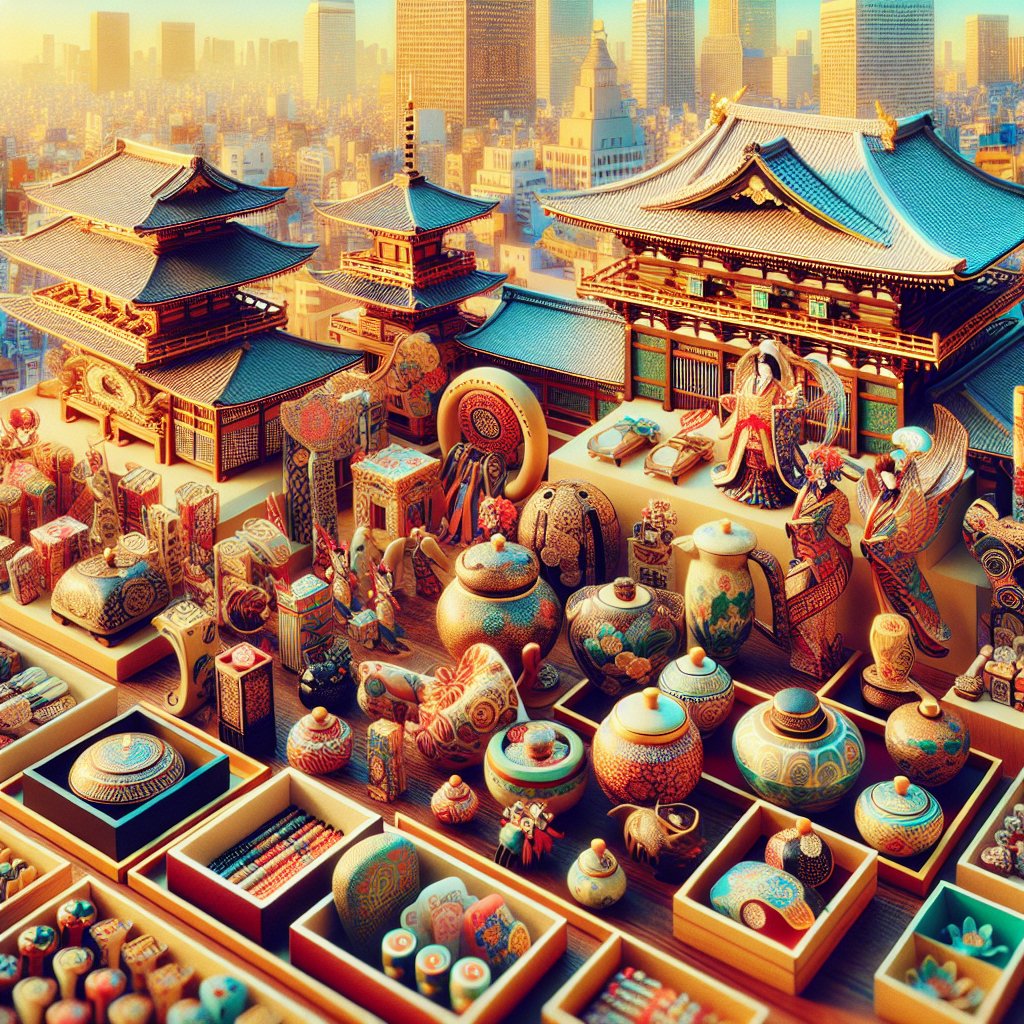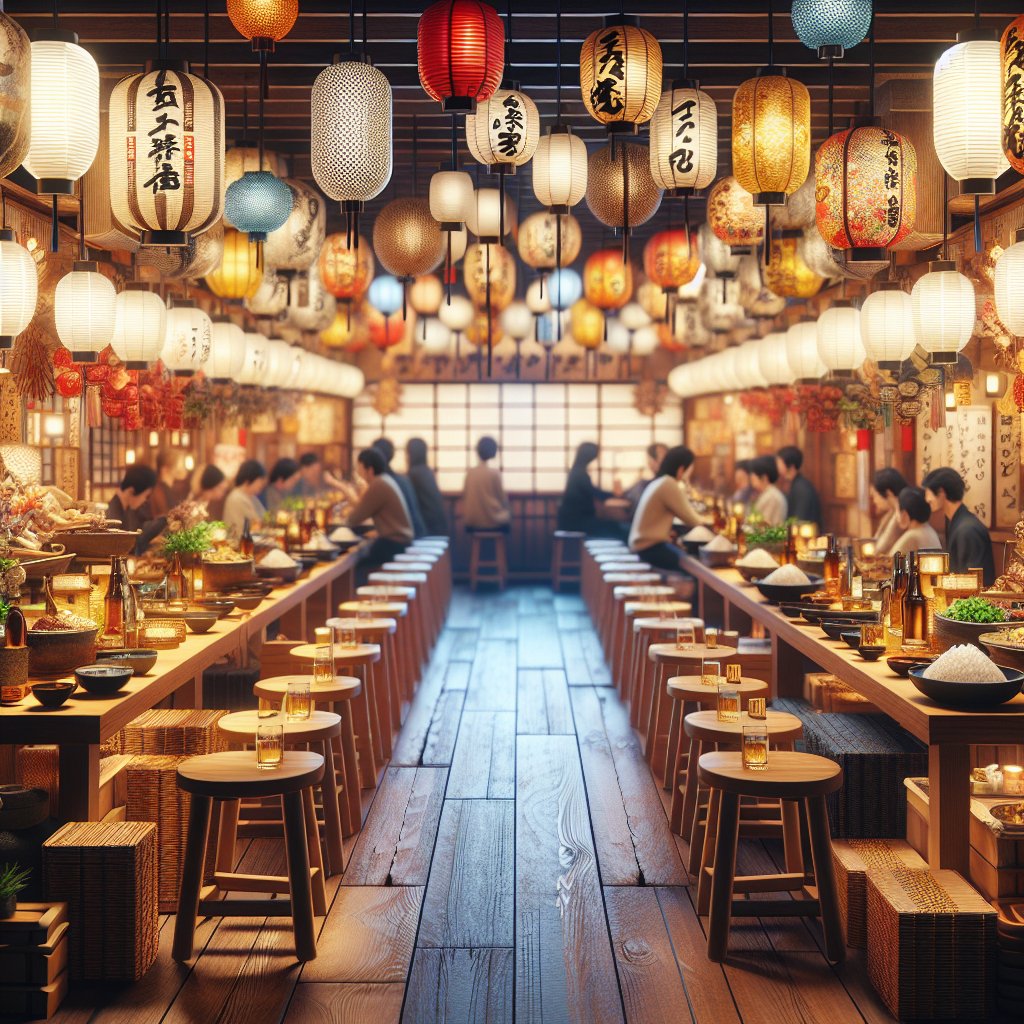Tokyo, a bustling metropolis that seamlessly blends the ultramodern with the traditional, offers a treasure trove of unique souvenirs that reflect Japan’s rich cultural heritage. Among these, traditional crafts stand out as timeless mementos that capture the essence of Japanese artistry and craftsmanship. Whether you’re a first-time visitor or a seasoned traveler, exploring Tokyo’s traditional crafts can provide a deeper understanding of the country’s history and culture.
The Allure of Japanese Pottery
Japanese pottery, known for its elegance and simplicity, is a popular choice for those seeking authentic souvenirs. Tokyo is home to numerous pottery shops and galleries where you can find exquisite pieces ranging from everyday tableware to intricate art pieces. The art of pottery in Japan dates back thousands of years, with each region developing its own distinct style and technique.
In Tokyo, you can explore a variety of pottery styles, such as the rustic charm of Mashiko ware or the refined beauty of Arita porcelain. Mashiko ware, originating from the town of Mashiko in Tochigi Prefecture, is known for its earthy tones and simple, functional designs. Arita porcelain, on the other hand, is celebrated for its delicate patterns and vibrant colors, often featuring intricate blue and white designs.
Visiting a pottery workshop in Tokyo not only allows you to purchase these beautiful items but also provides an opportunity to witness the craftsmanship involved in their creation. Many workshops offer hands-on experiences where you can try your hand at pottery making, guided by skilled artisans who are eager to share their knowledge and passion for this ancient craft.
The Timeless Beauty of Japanese Textiles
Another captivating aspect of Tokyo’s traditional crafts is its rich textile heritage. Japanese textiles are renowned for their quality, intricate designs, and vibrant colors. From kimono fabrics to modern fashion accessories, these textiles make for exquisite souvenirs that embody the elegance and sophistication of Japanese culture.
One of the most iconic Japanese textiles is the kimono, a traditional garment that has been worn for centuries. In Tokyo, you can find a wide range of kimono fabrics, from luxurious silk to more affordable cotton options. These fabrics often feature traditional patterns such as cherry blossoms, cranes, and waves, each carrying its own symbolic meaning.
For those interested in contemporary fashion, Tokyo offers a variety of modern interpretations of traditional textiles. Designers in the city have embraced the challenge of blending old and new, creating unique pieces that pay homage to Japan’s textile heritage while appealing to modern tastes. Scarves, bags, and clothing items made from traditional fabrics are popular choices for those looking to bring a piece of Japanese fashion back home.
In addition to purchasing textiles, visitors can also explore the art of textile dyeing and weaving through workshops and exhibitions. These experiences provide insight into the meticulous processes involved in creating these beautiful fabrics, from the selection of natural dyes to the intricate weaving techniques passed down through generations.
The Art of Japanese Paper: Washi
Washi, traditional Japanese paper, is another craft that has captivated the hearts of many visitors to Tokyo. Known for its strength, texture, and versatility, washi is used in a variety of applications, from calligraphy and origami to interior design and stationery.
Tokyo is home to several specialty shops and studios where you can purchase washi in a myriad of colors and patterns. These papers are often handmade using traditional methods, involving the careful selection of fibers from plants such as mulberry and mitsumata. The resulting paper is not only beautiful but also durable, making it a perfect choice for artistic projects and home decor.
For those interested in learning more about washi, many studios offer workshops where you can try your hand at papermaking. These sessions provide a hands-on experience of the traditional techniques used to create washi, allowing you to appreciate the skill and dedication required to produce this exquisite paper.
Exploring Tokyo’s Traditional Craft Markets
One of the best ways to discover Tokyo’s traditional crafts is by visiting the city’s vibrant craft markets. These markets offer a unique opportunity to explore a wide range of handmade goods, from pottery and textiles to paper and lacquerware. Each market has its own distinct atmosphere, providing a glimpse into the local culture and community.
The Oedo Antique Market, held monthly at the Tokyo International Forum, is a popular destination for those seeking traditional crafts. Here, you can find a diverse selection of antiques and handmade items, including ceramics, textiles, and art pieces. The market’s lively atmosphere and friendly vendors make it a delightful place to explore and find unique souvenirs.
Another must-visit market is the Asakusa Tori-no-Ichi Fair, held annually in November. This traditional fair is famous for its kumade, decorative bamboo rakes adorned with symbols of good fortune. These rakes are believed to bring prosperity and success, making them a meaningful souvenir for those wishing to carry a piece of Japanese tradition back home.
Exploring these markets not only allows you to purchase beautiful crafts but also provides an opportunity to interact with local artisans and learn about the stories behind their creations. These personal connections add depth to your souvenirs, transforming them from mere objects into cherished memories of your time in Tokyo.
The Cultural Significance of Traditional Crafts
Traditional crafts in Tokyo are more than just beautiful objects; they are a reflection of Japan’s cultural heritage and artistic legacy. Each craft carries with it a story, a tradition, and a connection to the past. By purchasing these crafts as souvenirs, you are not only acquiring a piece of art but also supporting the preservation of these time-honored traditions.
Many traditional crafts in Tokyo are created by artisans who have dedicated their lives to mastering their craft. These artisans often work in small, family-run businesses, where skills and techniques are passed down through generations. By supporting these artisans, you are helping to ensure that these crafts continue to thrive in the modern world.
In addition to their cultural significance, traditional crafts also offer a sustainable alternative to mass-produced souvenirs. Many of these crafts are made using natural materials and traditional methods, resulting in products that are not only beautiful but also environmentally friendly. By choosing traditional crafts, you are making a conscious decision to support sustainable practices and preserve the planet for future generations.
Conclusion: Bringing a Piece of Tokyo Home
As you explore the vibrant city of Tokyo, take the time to discover its traditional crafts and the stories they tell. Whether you choose a piece of pottery, a textile, or a sheet of washi, these souvenirs offer a tangible connection to Japan’s rich cultural heritage. By bringing a piece of Tokyo home, you are not only acquiring a beautiful memento but also supporting the artisans who keep these traditions alive.
In a world where mass-produced goods are the norm, traditional crafts stand out as a testament to the beauty and value of handmade artistry. They remind us of the importance of preserving cultural heritage and the role we play in supporting the artisans who dedicate their lives to their craft. So, as you wander through the bustling streets of Tokyo, take a moment to appreciate the artistry and craftsmanship that make this city truly unique.












